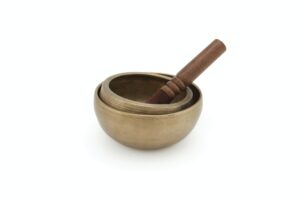Table of Contents
Honey has been used for thousands of years as both a sweet food and a medicinal remedy. In recent years, the therapeutic effects of honey have been found to surpass even those of medications in certain cases. One type of honey that stands out for its exceptional antibacterial and antiviral properties is Manuka honey. In this comprehensive guide, we will explore how to choose the best Manuka honey with a focus on its unique antibacterial compound, Methylglyoxal (MGO). Read on to discover everything you need to know about choosing high-quality Manuka honey.
The History of Honey as Medicine
Honey has a long history of medicinal use that can be traced back 8,000 years. Ancient civilizations such as the Greeks and Egyptians used honey topically to treat wounds and burns. The antibacterial and antiviral properties of honey were highly valued in traditional medicine. Interestingly, during those historical periods, the concept of microorganisms causing infections may not have been known. Nevertheless, honey’s effectiveness in treating skin problems and wound infections was well-documented.
The Antibacterial Properties of Honey
Honey has broad-spectrum antibacterial activity, making it effective against a wide range of bacteria. This is especially important in the face of antibiotic-resistant bacteria, which have become a major global health challenge. Unlike antibiotics, bacteria do not develop resistance to honey. In fact, there are no documented cases of bacteria developing resistance to honey.
The antibacterial properties of honey come from its inherent characteristics and a diverse array of components derived from nectar-producing plants and bees themselves. Some of these components are formed during the maturation process of honey. The high sugar content of honey, its viscosity, and acidic pH all contribute to its antibacterial effects. Additionally, honey contains hydrogen peroxide, which is a potent antibacterial agent. Bees also contribute an antibacterial component called bee defensin-1, which can kill various bacteria and microorganisms.
Manuka Honey and Methylglyoxal (MGO)
Manuka honey is a type of honey that is highly regarded for its exceptional antibacterial properties. It is derived from the nectar of the manuka tree, which is native to specific regions of New Zealand and Australia. Manuka honey contains a unique compound called Methylglyoxal (MGO), which is responsible for its antibacterial potency.
MGO is formed in manuka honey when a natural substance found in the manuka tree undergoes spontaneous dehydration. The level of MGO in manuka honey determines its antibacterial strength. The higher the MGO content, the more potent the antibacterial properties of the honey. However, it’s important to note that MGO is sensitive to heat. Heating manuka honey above a certain temperature can result in the loss of MGO.
The Antiviral Properties of Honey
In addition to its antibacterial effects, honey also exhibits antiviral properties. Consuming honey can help protect the body and boost the immune system. Honey has been found to inhibit the growth of enveloped viruses, including the virus that causes COVID-19. Multiple compounds found in honey can bind to the protease of SARS-CoV-2, effectively inhibiting its replication. Manuka honey, in particular, has been shown to inhibit the replication of influenza viruses, including drug-resistant strains.
Boosting the Immune System with Honey
Honey can activate several immune cells, enabling them to effectively eliminate viruses. Oligosaccharides, which are present in honey, enhance the activity of natural killer cells, providing additional protection against viral invasions. Honey also promotes autophagy, an internal cellular process that helps combat deadly viruses such as SARS-CoV-2. Autophagy involves the degradation and metabolism of cells, allowing for the removal and recycling of damaged cells and impurities.
Honey’s Anti-Inflammatory and Gut-Health Benefits
Inflammation is a common occurrence in bacterial or viral infections, and unchecked inflammation can harm the body. Honey has been found to promote autophagy and the proliferative activity of immune cells, which helps combat inflammation and promote recovery. Honey also has a dual role in inflammation control. It can downregulate anti-inflammatory factors, reducing inflammation damage, while stimulating the production of inflammatory mediators, promoting wound healing.
Additionally, honey has been shown to have positive effects on gut health. It contains phenolic compounds, oligosaccharides, and polysaccharides that support the growth of beneficial bacteria in the gut while inhibiting the growth of harmful bacteria. Honey also promotes the production of short-chain fatty acids in the intestines, further contributing to gut health.
Choosing the Best Manuka Honey
When it comes to choosing the best Manuka honey, there are a few factors to consider. Raw and darker honey varieties tend to have more robust efficacy compared to commercially available honey found on supermarket shelves, which is often pasteurized. Heat processing can lower the antioxidant capacity of honey, so opting for honey processed using high-pressure techniques is recommended.
Manuka honey comes in a range of colors, and dark-colored honey generally contains higher levels of phenolic compounds and exhibits more potent activity. To ensure you are getting high-quality Manuka honey, opt for pure honey sourced from specific regions in New Zealand and Australia. Look for the Unique Manuka Factor (UMF) rating, which indicates the level of MGO in the honey. Higher UMF ratings correspond to higher levels of MGO. Some honey products also specify the amount of MGO in milligrams per kilogram.
It’s important to note that Manuka honey with higher UMF ratings may have a strong flavor that some people find pungent. However, the potent antibacterial and antiviral properties make it worth considering.
In conclusion, Manuka honey is a powerful natural remedy with exceptional antibacterial and antiviral properties. When choosing Manuka honey, it’s important to consider factors such as the MGO content and the UMF rating. By selecting high-quality Manuka honey, you can harness its therapeutic benefits and support your overall health and well-being.
Note: How to choose Manuka honey MGO



